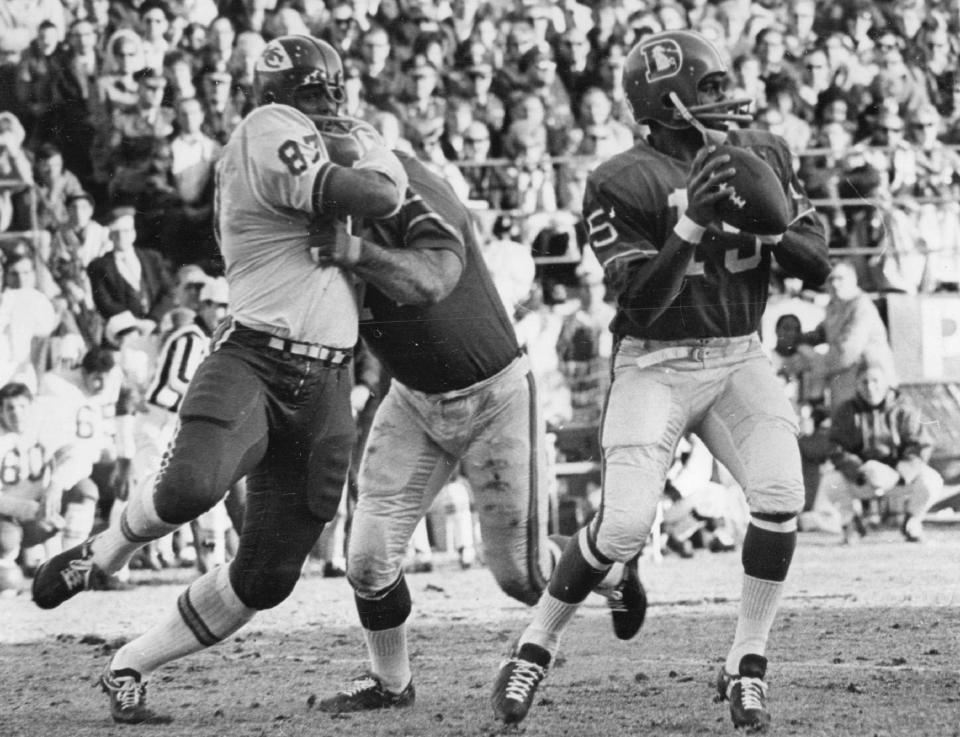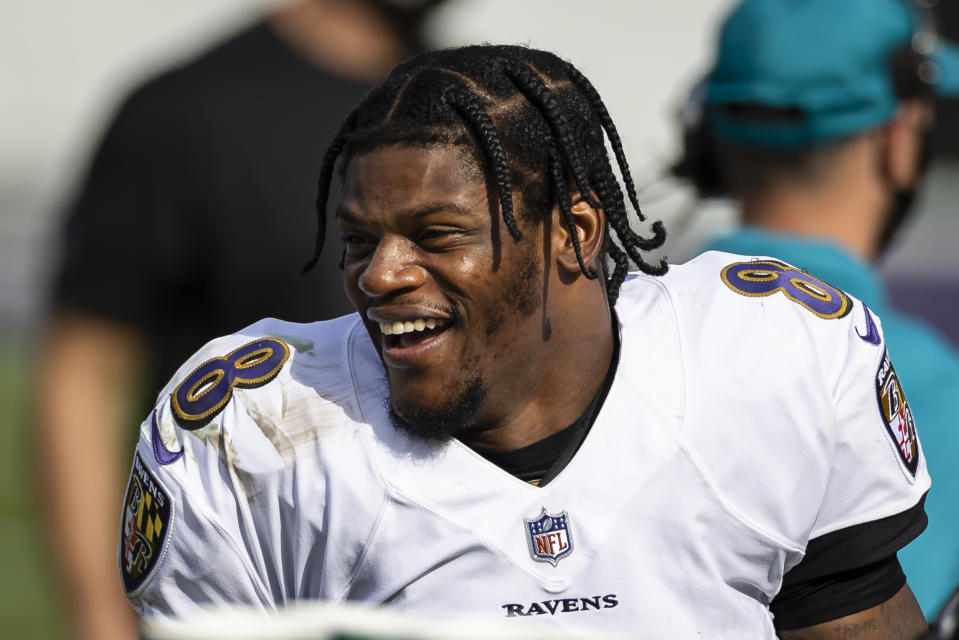Ten of the NFL's Week 1 starting QBs were Black, a record that shows ability is trumping antiquated notions
Dwayne Haskins.
Ten of the 32 quarterbacks who started for their respective teams in the NFL’s regular season Week 1 are Black men, the most ever. They are bound together now, far more than the answer to a trivia question, proof that for a league that so often has to be dragged to progress, progress has been made.

They aren’t just placeholders, either, guys who are keeping the seat warm until their team can find better options. (Well, Taylor might be. Sorry, Tyrod.) Two of them were the No. 1 overall pick in their respective drafts. Seven were chosen in the first round.
If you were making a list of the five best quarterbacks currently playing in the NFL, you’d probably have four of those names on it — Mahomes, Watson, Jackson and Wilson. Jackson is the reigning MVP. Newton is a former league MVP. Mahomes, the 2019 MVP, just got his ring as a Super Bowl champion. Wilson has a ring too.
“You’ve still got a lot of people frowning that this many guys are starting in the National Football League, but hopefully we’re at a point now where it’s not about color but it’s about ability. They want to win. Coaches want to win, general managers want to win, owners want to win, and that’s what these guys do,” Doug Williams told Yahoo Sports on Tuesday. Williams is the senior vice president of player development for the Washington Football Team, and also the first Black man to quarterback his team to a Super Bowl title.
It seems like this milestone was inevitable, but it also wasn’t long ago that this day felt like it would never be.
For decades there’s been a damning stereotype that Black men weren’t smart enough to be quarterbacks, nor the type of men to lead teams in the so-called ultimate team sport.

Marlin Briscoe became the first Black quarterback to start a game, on Oct. 6, 1968, for the Denver Broncos. He was called “The Magician” for his incredible athleticism and starred at the Omaha University, but the Broncos most had him practice at receiver. He started five games that season and was runner-up for AFL Rookie of the Year, yet as the Broncos gathered to begin the 1969 season, Briscoe was given neither a chance to compete for the job nor a reason why he was excluded.
He asked for his release, landed with the Buffalo Bills, and became a Pro Bowl receiver. He also became teammates with James “Shack” Harris, who was nearly pigeonholed as well: Harris got one start and saw limited snaps with the Bills, but with the Rams in 1974, he took over as starting quarterback midway through the season. With Harris leading the way, the Rams went 7-2 to close out the season, won the NFC West and beat Washington in the divisional round of the playoffs.
The next year, Harris was 11-2 as the starter. In 1976, despite the Rams’ success with Harris and against coach Chuck Knox’s wishes, Rams owner Carroll Rosenbloom saw a knee injury Harris was dealing with as the opening he needed to replace him with a white quarterback. Rosenbloom told media “the quarterback position is controversial enough without adding the color element.”
Their stories repeated throughout the years, and as recently as 2018, former NFL GM Bill Polian said on ESPN he believed Lamar Jackson should be moved to receiver.
Would that anyone in Baltimore had believed the same.
“Lamar Jackson 20, 25 years ago wouldn’t have been playing quarterback,” Williams said. “You have lot of them that wouldn’t have been paying quarterback. That would have been nipped in the bud before they got there.”
Williams didn’t have to worry about being moved from the position as a younger player; he notes that he went to an all-Black high school and an all-Black college so “I was safe.”

He laughed as he added, “I didn’t have the Lamar Jackson and Cam Newton and the Russell Wilson athletic ability, so they figured ‘if he wasn’t going to play quarterback, he wasn’t going to play.’ I was a decent enough athlete for my position.”
Over time, milestones were achieved. Williams wins the Super Bowl at the end of the ‘87 season; Michael Vick becomes the first Black quarterback drafted first overall in 2001; Steve McNair becomes the first to win an MVP in 2003, though he shared it with Peyton Manning.
As Williams said, a lot of men were born too soon for the opportunity that Jackson, Mahomes, etc. have now.
But in a league where winning generally trumps all, the standings overrule stale ideas.
“Once the conditions changed from the mindset from ownership and general managers and head coaches — don’t get me wrong, because skin color does matter to some people — this is a business of trying to win, and you have to get past the color barrier if they guy you’re playing is better than the guy you’d like to be playing,” Williams said. “You know? Look at the guys who played [last] Thursday — who’s better than Mahomes and Watson? Lamar Jackson? Russell Wilson and Kyler Murray?”
It’s bittersweet to think about what could have been had Briscoe been allowed to compete, or Harris not been dumped by Rosenbloom, or untold other young Black players who were steered away from the position because of racist tropes.
We can both lament those events and also celebrate the present and the success of these 10 men on and off the field.
More from Yahoo Sports:

 Yahoo Sport
Yahoo Sport 






































